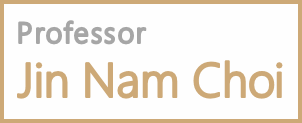19. *Choi, J. N., Sung, S. Y., & Kim, M. U. (2010). How do groups react to unexpected threats? Crisis management in organizational teams. Social Behavior and Personality, 38, 805-828.
* Choi, J. N., Sung, S. Y., & Kim, M. U. (2010). How do groups react to unexpected threats? Crisis management in organizational teams. Social Behavior and Personality, 38, 805-828.
18. *Butt, A. N., & Choi, J. N. (2010). Does power matter? Negotiator status as a moderator of the relationship between negotiator emotion and behavior. International Journal of Conflict Management, 21, 124-146.
* Butt, A. N., & Choi, J. N. (2010). Does power matter? Negotiator status as a moderator of the relationship between negotiator emotion and behavior. International Journal of Conflict Management, 21, 124-146.
17. Kim, M. S., & Choi, J. N. (2010). Layoff victim’s employment relationship with a new employer in Korea: Effects of unmet tenure expectations on trust and psychological contract. International Journal of Human Resource Management, 21, 781-798.
Kim, M. S., & Choi, J. N. (2010). Layoff victim’s employment relationship with a new employer in Korea: Effects of unmet tenure expectations on trust and psychological contract. International Journal of Human Resource Management, 21, 781-798.
16. *Sung, S. Y., & Choi, J. N. (2009). Do Big 5 personality factors affect individual creativity? The moderating role of extrinsic motivation. Social Behavior and Personality, 37, 941-956.
* Sung, S. Y., & Choi, J. N. (2009). Do Big 5 personality factors affect individual creativity? The moderating role of extrinsic motivation. Social Behavior and Personality, 37, 941-956.
15. *Choi, J. N., Anderson, T. A., & Veillette, A. (2009). Contextual inhibitors of employee creativity in organizations: The insulating role of creative ability. Group & Organization Management, 34, 330-357.
* Choi, J. N., Anderson, T. A., & Veillette, A. (2009). Contextual inhibitors of employee creativity in organizations: The insulating role of creative ability. Group & Organization Management, 34, 330-357.
14. *Lim, H. S., & Choi, J. N. (2009). Testing an alternative relationship between individual and contextual predictors of creative performance. Social Behavior and Personality, 37, 117-136.
*Lim, H. S., & Choi, J. N. (2009). Testing an alternative relationship between individual and contextual predictors of creative performance. Social Behavior and Personality, 37, 117-136.
13. *Choi, J. N., & Moran, S. V. (2009). Why not procrastinate? Development and validation of a new active procrastination scale. Journal of Social Psychology, 149, 195–211.
* Choi, J. N., & Moran, S. V. (2009). Why not procrastinate? Development and validation of a new active procrastination scale. Journal of Social Psychology, 149, 195–211.
12. *Chang, J. Y., Choi, J. N., & Kim, M. U. (2008). Turnover of highly educated R&D professionals: The role of pre-entry cognitive style, work values, and career orientation. Journal of Occupational and Organizational Psychology, 81, 299-317.
* Chang, J. Y., Choi, J. N., & Kim, M. U. (2008). Turnover of highly educated R&D professionals: The role of pre-entry cognitive style, work values, and career orientation. Journal of Occupational and Organizational Psychology, 81, 299-317.
11. *Chang, J. Y., & Choi, J. N. (2007). The dynamic relation between organizational and professional commitment of highly educated research and development (R&D) professionals. Journal of Social Psychology, 147, 299-315. [A featured article of the issue]
* Chang, J. Y., & Choi, J. N. (2007). The dynamic relation between organizational and professional commitment of highly educated research and development (R&D) professionals. Journal of Social Psychology, 147, 299-315. [A featured article of the issue]
10. Choi, J. N. (2007). Group composition and employee creative behaviour in a Korean electronics company: Distinct effects of relational demography and group diversity. Journal of Occupational and Organizational Psychology, 80, 213-234.
Choi, J. N. (2007). Group composition and employee creative behaviour in a Korean electronics company: Distinct effects of relational demography and group diversity. Journal of Occupational and Organizational Psychology, 80, 213-234.
